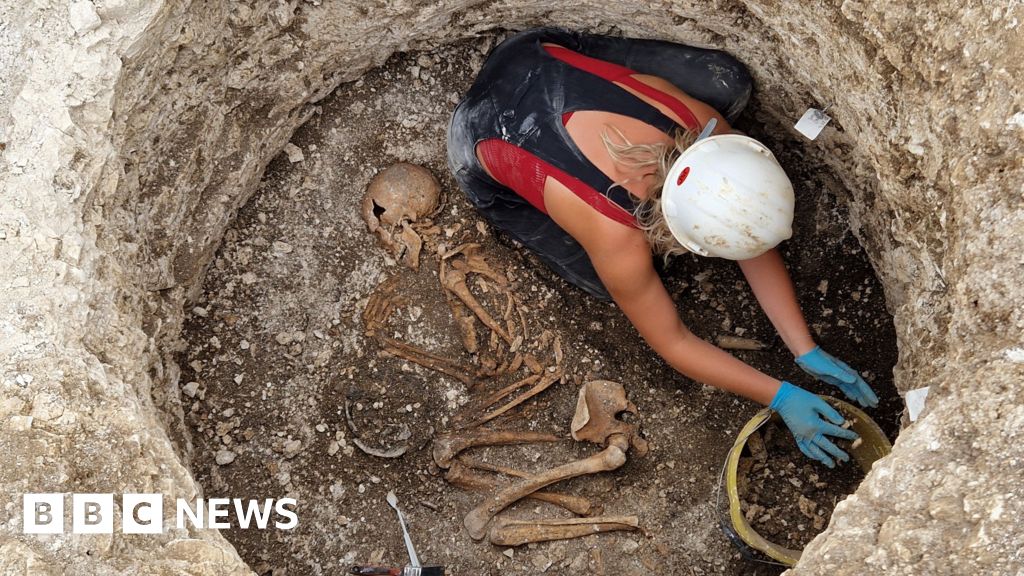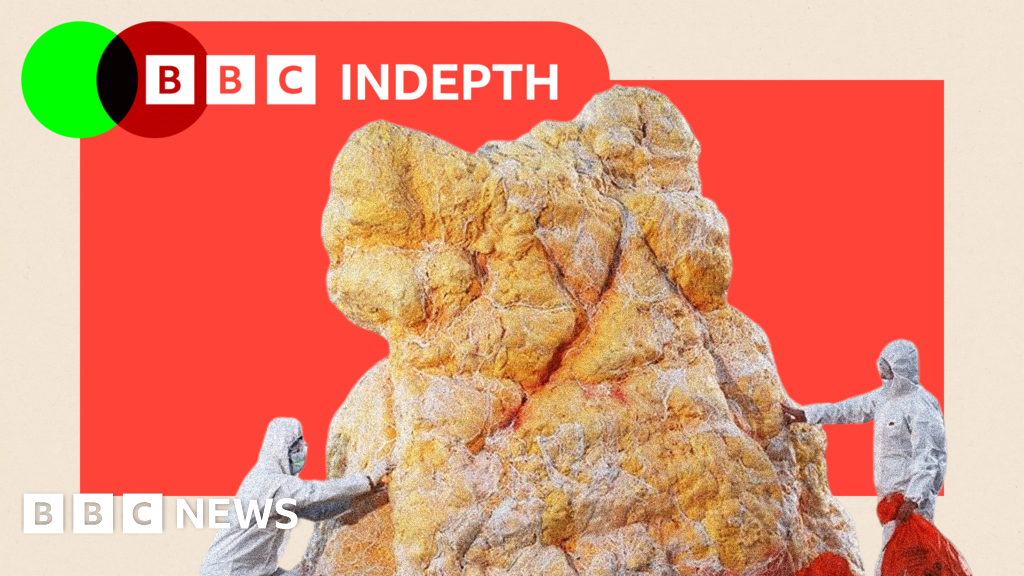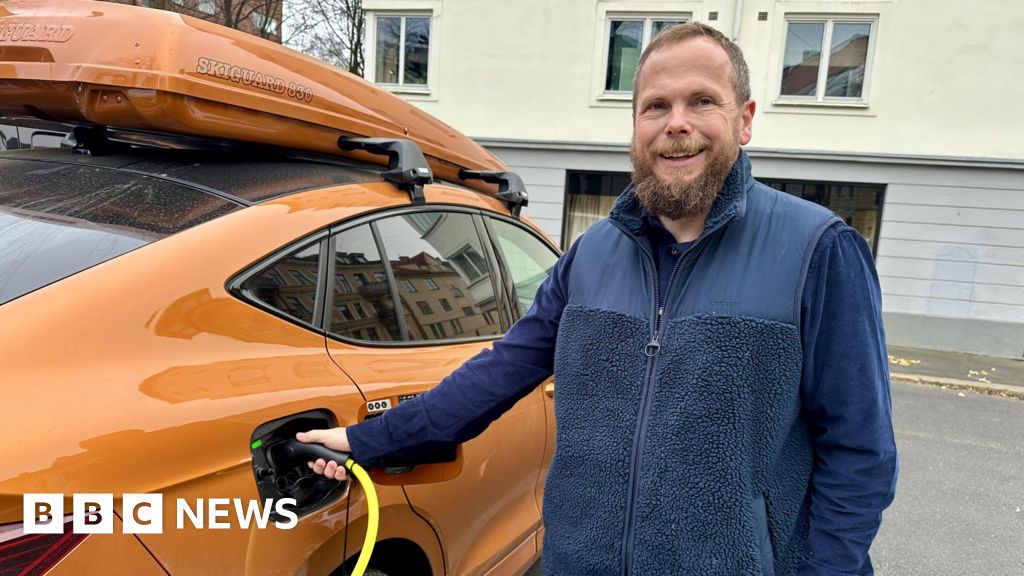ARTICLE AD BOX
image source, Reuters
image captionSteam rises from a coal fired power plant in South Africa - an announcement from China may mean fewer such plants are builtWith just five weeks left until world leaders gather in Glasgow for a critical climate summit, the BBC's Matt McGrath and Roger Harrabin consider progress made at this week's UN gathering and the outstanding issues that remain.
Climate change was the dominant theme at this year's UN General Assembly (UNGA) as countries recognised the seriousness of the global situation.
All across the planet, the hallmarks of rising temperatures are being keenly felt with intense wildfires, storms and floods taking place on scales rarely seen.
Against this backdrop, Boris Johnson told the UN it was "time to grow up" on the climate issue.
The prime minister fought to bring November's UN climate summit to Britain, and it's clear he sees himself and the UK as global leaders in tackling this planetary threat.
His bizarre if powerful speech at the UN harnessed the Greek tragedian Sophocles and TV's Kermit the Frog to accuse some other leaders of behaving like adolescents waiting for someone else to tidy up their mess.
image source, Reuters
image captionBritain's prime minister addressing the UN this weekDid it encourage or annoy them? That's not yet clear.
But how's Mr Johnson faring with his own policies?
Well, even the most grudging environmentalist would give him high marks for target-setting. The UK pledges to cut 78% of its emissions by 2035 - that's from a 1990 baseline.
That doesn't include emissions created abroad in the process of manufacturing the goods bought in the UK - but leave that to one side for the moment, because Britain is not on course for that 78% target anyway.
A report showed its current plans are projected to deliver less than a quarter of the cuts needed to meet the goal. The government didn't deny that.
It warned little progress has been made recently in areas such as agriculture, power, and waste (a major source of emissions).
image source, EPA
image captionStudents and young people take to the streets to protest against climate changeThe government has promised to put effective policies in place before the November conference, known as COP26, is held in Glasgow. But it's had policy rows over gas boilers, farm subsidies, aviation - and especially over how the zero-carbon revolution will be funded.
What's more, several of Mr Johnson's current policies will send emissions up, not down.
He's not opposing a coal mine in Cumbria or oil drilling off Shetland; he's cutting taxes on flying; and he's building new roads and the HS2 railway despite the massive amount of CO2 created to make the infrastructure.
Environmentalists warn these will prove embarrassing during the Glasgow summit.
What did major emitters China and the US say?
Both the US and China used the UN platform to take important steps forward.
President Biden underlined his commitment to a multilateral approach to climate change by announcing a significant increase in the US financial contribution to climate aid.
The US will in future pay $11.4bn per annum in climate finance, doubling the amount they previously committed to at a leader's summit in April.
"It's welcome but not sufficient," said Jennifer Tollman, who's with E3G, a climate change think tank.
image source, Pool
image captionFor the second year in a row, China's President Xi used the UN meeting to make a major climate announcement"This still needs to get through Congress. And even if that happens, the doubling wouldn't actually be happening until 2024."
The other big climate story was China's statement that it would not build any more coal plants overseas.
It's the second year in a row that China's President Xi Jinping has used the forum to announce significant climate policy.
While critics have pointed out that China was already in the process of slowing down these projects, there has been a general welcome for the step.
"China's overseas moratorium is a big deal," said Li Shuo from Greenpeace.
"Beijing has been the last man standing in supporting coal projects across the developing world. Its ban on these projects will significantly shape the global energy landscape in the years to come."
There are still no details on what the new commitment will mean, or when it comes into force and what exactly it . But analysis suggests that it would result in the cancellation of 11 coal projects across eight countries in Africa alone.
While applauding the move, many experts said they wanted more clarity from China on reducing its domestic reliance on coal.
"The main event is for China to pledge a major cut in its emissions now, in this decade, as US, EU and others have," tweeted former US climate envoy Todd Stern.
"China counts for 27% of global CO2 emissions. No chance to keep 1.5C alive unless China steps up for real," he wrote, referring to the key temperature threshold that scientists believe is the threshold of highly dangerous warming.
Where else was there progress?
image source, Getty Images
Whisper it cautiously, but there were a few announcements at UNGA that suggest progress is being made.
According to analysis carried out by E3G, some of the highlights included:
- The US, EU and others pledging to cut methane emissions by 30% by 2030
- Denmark and Costa Rica launching a Beyond Oil and Gas Alliance to phase out fossil fuels.
- Turkey committing to ratify the Paris Agreement and is said to be working on a carbon cutting plan.
- Brazil indicating it would not block negotiations in Glasgow on carbon markets, one of the stickiest of the outstanding issues from the Paris agreement.
- India is said to be moving towards submitting a new NDC before Glasgow.
What main challenges lie ahead?
Despite the cautious sense of progress at the UN meeting, some major questions remain.
Many countries including China and India haven't yet submitted new carbon cutting plans, as they are expected to do before the summit.
Just as important, the developed world is still scrambling to come up with the $100bn per annum that's meant to flow to the developing world from 2020.
With just five weeks left until Glasgow, diplomats are working hard to try and secure a figure that has become a symbol of trust between rich and poor nations.
To get to the key number may require some creative accounting.
"One of the things that is floating around but is by no means certain to land, is this idea of $500bn over five years," Jennifer Tollman told BBC News.
image source, Getty Images
image captionClimate change is a key issue in the German federal election"It's something I've heard come up more and more frequently, it's not going to be $100bn in 2021, but maybe that needs to be $120bn by 2022."
Coal is one of the other major questions.
It will be part of the discussions next week in Milan at what is termed the Pre-COP meeting. But critically it will also be on the agenda when the heads of the G20 group of countries gather in Rome, just days before Glasgow.
The G20 nations represents 80% of global emissions - if they can agree a strong statement that signals that coal has no future, this will be a major boost for COP26.
"The next 5 weeks are key," said Laurence Tubiana, from the European Climate Foundation and a key architect of the Paris agreement.
"In particular we need G20 countries to deliver when they meet in Rome, and for those countries yet to submit stronger plans to do so - now!"

 3 years ago
45
3 years ago
45








 English (US) ·
English (US) ·